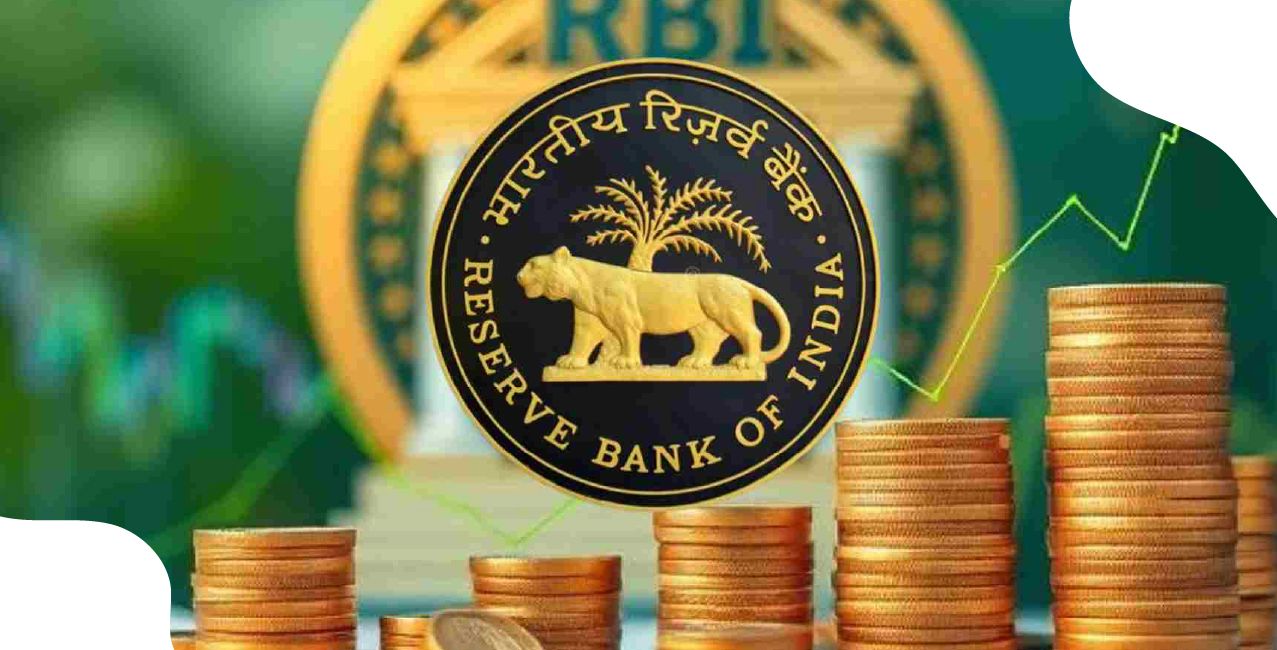Major RBI Move: Cash Withdrawal Limit Set to ₹10,000 for This Bank’s Customers

Check Your Loan Eligibility Now
By continuing, you agree to LoansJagat's Credit Report Terms of Use, Terms and Conditions, Privacy Policy, and authorize contact via Call, SMS, Email, or WhatsApp
Regulator caps withdrawals and limits fresh lending at Baghat Urban Co-operative Bank, Solan, citing financial stress and depositor safety concerns.
Many customers of The Baghat Urban Co-operative Bank in Solan, Himachal Pradesh, are facing trouble withdrawing their own money. The Reserve Bank of India (RBI) has placed strict limits on cash withdrawals, allowing each account holder to take out only ₹10,000.
This directive, issued on October 6, 2025, and effective from the close of business on October 8, 2025, will remain in force for six months, unless lifted earlier. The order, passed under Section 35A read with Section 56 of the Banking Regulation Act, 1949, aims to safeguard depositors while the regulator assesses the bank’s financial health.
The development marks another chapter in the RBI cash withdrawal limit 2025 framework, one that reflects the regulator’s increasing scrutiny of small cooperative banks across India.
RBI Cash Withdrawal Limit 2025: Why It Was Enforced?
According to the October 2025 directive, the Baghat Urban Co-operative Bank has been barred from granting or renewing loans, making new investments, or accepting fresh deposits without RBI approval. The regulator found several irregularities in the bank’s functioning, including weak governance and poor liquidity management.
Under the restriction, depositors can withdraw only ₹10,000, irrespective of the total balance. This ceiling includes both savings and current accounts. The RBI stated that the move was “necessary in the interest of depositors,” as the bank failed to comply with supervisory norms.
To understand the broader picture, it helps to see where this order stands among other similar enforcement actions in recent years.
Before viewing the table below, it is important to recall that the RBI uses these interventions as early-warning tools rather than penalties. They are preventive steps meant to protect customers before the situation worsens.
This table shows how the RBI action against cooperative bank institutions has become frequent in 2025, indicating a tightening of the regulator’s oversight.
Read More - HDB Customer Care – Helpline Number, Email & Support Guide
What This Bank Restriction Means For Customers?
The bank withdrawal restriction news has created concern among depositors, especially those depending on the cooperative for daily business transactions. Although the RBI’s order is temporary, customers cannot withdraw more than ₹10,000 from their combined accounts until further review.
The Deposit Insurance and Credit Guarantee Corporation (DICGC) scheme assures protection of up to ₹5 lakh per depositor per bank, covering both principal and interest. However, this insurance applies only if the bank is eventually liquidated or merged, not during the restriction period.
To understand the legal foundation of such orders, the next section outlines the provisions that empower the RBI to issue these directions.
These provisions allow the RBI to intervene swiftly when it detects financial stress or governance failure in any banking institution.
RBI Imposes ₹10,000 Withdrawal Cap: The Larger Pattern
The RBI imposes ₹10,000 withdrawal cap on Baghat Urban Co-operative Bank is part of a trend that has shaped India’s financial supervision model. Cooperative banks, especially in smaller towns, often face resource constraints and depend heavily on local lending.
The central bank’s Financial Stability Report (June 2025) already highlighted the increasing risk in smaller cooperative entities due to delayed audits and insufficient capital buffers. The report warned that poor governance could lead to depositor distress if not addressed early.
This action echoes past measures. In 2019, the RBI restricted withdrawals at Punjab and Maharashtra Co-operative Bank (PMC Bank), initially limiting access to ₹1,000, before raising it gradually. In 2022, Rupee Co-operative Bankfaced a ₹10,000 limit that was lifted after compliance improvements.
The pattern is clear: restrict withdrawals, monitor financials, and decide on merger, revival, or liquidation depending on the outcome.
This data, drawn from RBI directives and cooperative sector reports, shows that such limits often serve as controlled interventions rather than outright punishments.
For more background, readers can refer to an earlier report on similar cases titled “RBI Tightens Grip on Failing Co-operative Banks After PMC Collapse” published in 2023 on our news portal (examplelink.com/article/pmc-collapse-rbi-2023).
Also Read - Banks Appointed this Robot to Recover Loans from Defaulter Customers: Next-Gen Use of AI
RBI Action Against Cooperative Bank: The Supervision Model
The RBI’s recent action in the cooperative bank sector reflects its growing oversight of smaller regional and state banking institutions. These banks usually serve traders, small businesses and rural communities. Many of them struggle with old management systems and lower transparency.
Traditionally, cooperative banks were under dual control: the RBI and state governments both had roles. That often delayed quick corrective steps. But with the Banking Regulation (Amendment) Act, 2020, the RBI now has full control over cooperative banks’ financial operations.
As LoansJagat reports in “RBI Imposes Penalties on Five Co-op Banks for Regulatory Violations”, the central bank has been enforcing compliance strictly in cooperative banks, under its expanded supervisory role.
A comparison of past measures shows how the RBI’s response has matured in recent years.
This pattern indicates a stricter approach where deposit safety outweighs institutional leniency.
Conclusion
The Baghat Urban Co-operative Bank case reflects a familiar story in India’s banking landscape: small institutions struggling with compliance, and the RBI stepping in to protect depositors. The restriction may inconvenience customers now, but it acts as a firewall against deeper trouble later.
The next few months will decide whether this bank stabilises or faces a merger. The RBI cash withdrawal limit 2025, though restrictive, is a necessary step to ensure depositor trust and preserve financial discipline in the cooperative banking network.
If the bank adheres to compliance norms and strengthens governance, the regulator may ease the cap. Until then, customers will need to wait, patiently, and perhaps a little anxiously, before they can withdraw their own money without limits.
Other News Pages | |||
India’s Inflation Falls Below RBI Target, Rate Cut Hopes Rise | |||
Air India Gets $215M Funding from Standard Chartered and BOI | |||
About the author

LoansJagat Team
Contributor‘Simplify Finance for Everyone.’ This is the common goal of our team, as we try to explain any topic with relatable examples. From personal to business finance, managing EMIs to becoming debt-free, we do extensive research on each and every parameter, so you don’t have to. Scroll up and have a look at what 15+ years of experience in the BFSI sector looks like.
Subscribe Now
Related Blog Post

Home Loan Interest Rates 2025 Deliver Major EMI Relief, Will Borrowers See More Gains In 2026?

Will the Indian Rupee Stabilise in 2026 After a Volatile 2025?

RBI Draft Rules Target Surprise Costs in Overseas Payments
Recent Blogs
All Topics
Contents
Quick Apply Loan
Consolidate your debts into one easy EMI.
Takes less than 2 minutes. No paperwork.
10 Lakhs+
Trusted Customers
2000 Cr+
Loans Disbursed
4.7/5
Google Reviews
20+
Banks & NBFCs Offers
Other services mentioned in this article





